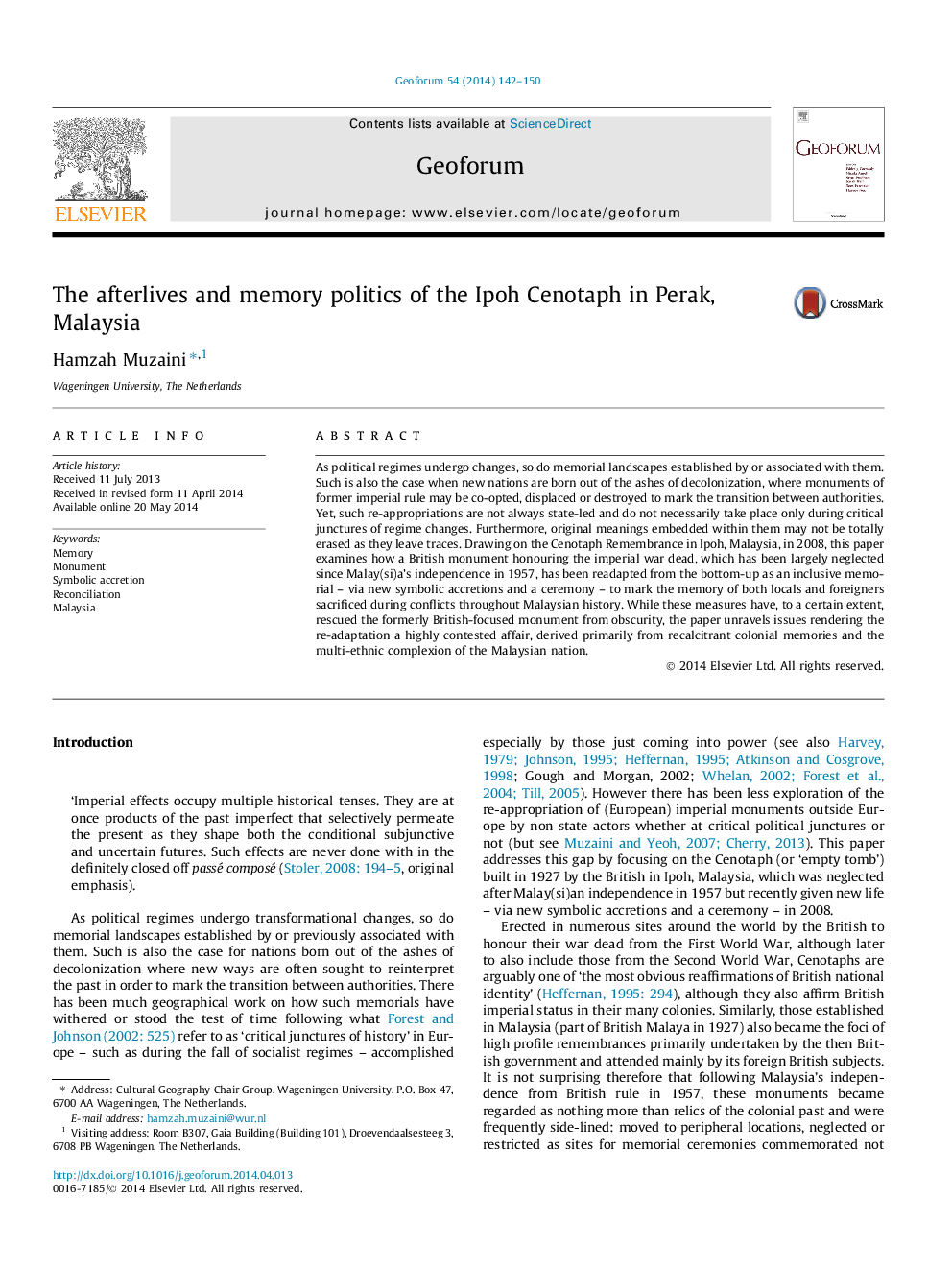| Article ID | Journal | Published Year | Pages | File Type |
|---|---|---|---|---|
| 5074009 | Geoforum | 2014 | 9 Pages |
Abstract
As political regimes undergo changes, so do memorial landscapes established by or associated with them. Such is also the case when new nations are born out of the ashes of decolonization, where monuments of former imperial rule may be co-opted, displaced or destroyed to mark the transition between authorities. Yet, such re-appropriations are not always state-led and do not necessarily take place only during critical junctures of regime changes. Furthermore, original meanings embedded within them may not be totally erased as they leave traces. Drawing on the Cenotaph Remembrance in Ipoh, Malaysia, in 2008, this paper examines how a British monument honouring the imperial war dead, which has been largely neglected since Malay(si)a's independence in 1957, has been readapted from the bottom-up as an inclusive memorial - via new symbolic accretions and a ceremony - to mark the memory of both locals and foreigners sacrificed during conflicts throughout Malaysian history. While these measures have, to a certain extent, rescued the formerly British-focused monument from obscurity, the paper unravels issues rendering the re-adaptation a highly contested affair, derived primarily from recalcitrant colonial memories and the multi-ethnic complexion of the Malaysian nation.
Keywords
Related Topics
Social Sciences and Humanities
Economics, Econometrics and Finance
Economics and Econometrics
Authors
Hamzah Muzaini,
